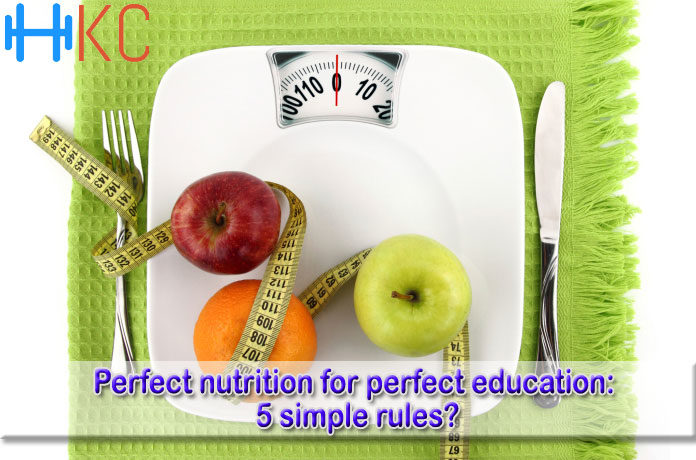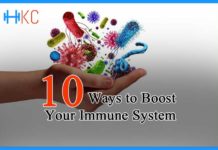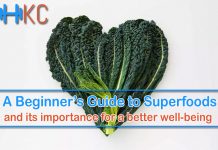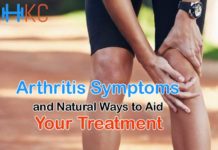Nutrition has an extensive impact on our well-being. What you eat directly impacts the structure and functioning of the brain. Just like in cars that work best on receiving premium fuel, the brain works best when it gets premium nutrients. Eating high-quality meals that contain vitamins, antioxidants and minerals nourish the brain. Eating junk foods lowers the ability of your body as some toxins present in some foods may harm the body. Education and nutrition are related as for you to be able to go on with your studies your body must be prepared. Diseases can lead to absenteeism in class which later affects your academic. For a perfect education, you need being healthy. Below are some health tips that will assist you to keep healthy and ready to learn.
1. Balanced diet
A balanced diet is the one that conveys your body all the nutrients it needs to function effectively. No matter your age you require a balanced diet for better brain performance. A balanced diet is critical for infants as it is at this stage where the brain and the nervous system start developing. Excess fats and sugar in your diet will impair the brain development and function. Omega 3 fatty acids which are found in seafood and some plants oil and seeds are essential for good memory. Expectant women should have these fats in their diet for infants to have healthy nerves, vision and brain development of the baby. Dietary deficiency of omega 3 fatty acids can lead to mental disorders such as dyslexia, depression, attention-deficit disorder, schizophrenia, bipolar disorder, and dementia. Iodine is also critical for brain formation and development. It also improves learning and memory. Lack of iodine results in an irreversible brain impairment that causes problems such as thyroid gland disorder, cerebral palsy, deaf-mutism and many more. Diets rich in fats and sugar adversely affects the cognitive ability of the brain and memory. These fats are harmful to infants and can lead to brain impairment which results in less brain functioning. Lack of a balanced diet can also negatively affect not only the brain but also the other parts of the body.
2. Food analysis
Food analysis refers to the characterization of food and their constituents. Food analysis helps in determining the nutrients present in a given meal. Food analysis helps customers make knowledgeable choices when buying food. Most foods on the market are labeled to make sure even before buying it you’re able to identify its nutritional value. Food analysis is in addition used to determine whether the food is safe for human consumption. This forces the manufacturer to work hard in producing substances that are toxic free and can’t affect the wellbeing of a human being. When buying processed foods always make sure to look at their composition and other aspects listed to make sure it is safe for your consumption. Take your time to improve your health and get your assignments done on time by professionals at. Failure to do a food analysis may lead to food poisoning which may be as a result of poor packaging and storage.
3. Nutrition plan
Nutrition is the process of extracting nutrients from the food you eat. A nutrition plan is aimed at making sure that the food you take supplies your body sufficient energy but not excess. Excess of some nutrients results to weight gain which is later accompanied by some diseases. The body needs carbohydrates, proteins, and fats but at an optimal level. These macronutrients provide your body with energy in different proportions: 45 to 65 percent should be from carbohydrates, 10 to 35 percent from protein and 20 to 25 percent from fats. Your daily meal should not lack any of these macronutrients but at the right amount. Your body gets vitamins and minerals from eating fruits, vegetables, dairy, and whole grains. Vitamins and minerals don’t give you energy, but instead, they contribute to your well-being. Lack of vitamins and minerals in your diet can result in various dietary diseases like anemia due to the lack of iron, rickets due to lack of Vitamin D, Scurvy which is caused by lack of vitamin C (ascorbic acid), pellagra caused by lack of vitamin B3 and beriberi caused by lack of vitamin B1.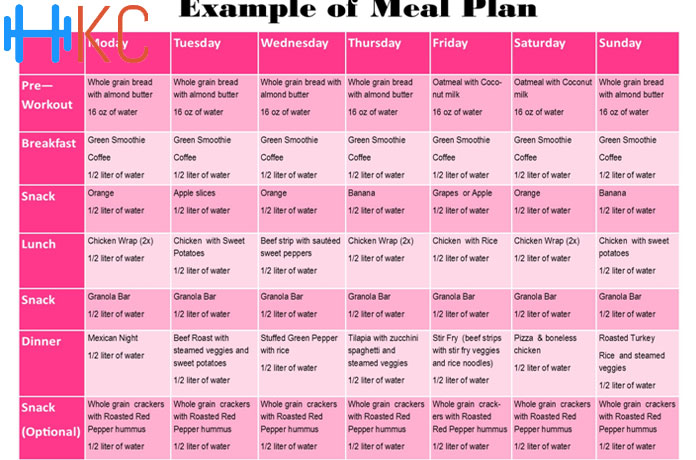
To avoid dietary related diseases, it is recommended to take whole foods such as vegetable, eggs, fruits, natural yogurt, and others. Avoid meals that will indulge excess salt, sugar and unhealthy calories into your body. You should also consume water to keep your body hydrated. At an average weight it is recommended that you take eight glasses of water but if you are overweight make sure to take more than eight glasses. The body requires water for metabolism and to eliminate toxins and waste products from the body. Water also improves the rate of digestion and also reduces the edge of craving for unwholesome foods that supply your body with unwanted calories and salt.
4. Healthy eating
Healthful eating isn’t limited to dieting and depriving yourself of the food you love, it is meant to ensure you have energy, feel good, boost mood and improve your health. You should always make sure to eat a nutritious breakfast that will sustain you with all the energy you need throughout the day. Healthy eating also involves the amount of food you eat. Taking more food than you should be isn’t healthy, and the excess food will go to waste. To be able to follow your diet it is recommended that you prepare more than you can take to be sure of the diet you are taking else you will be craving for restaurant foods which may be ungood for your health. Other healthy eating habits include: eating small amounts but often about six times in a day instead of having three or two large meals, drink plenty of water and not soda and other beverages, eat natural foods and not processed foods and knowing the components of the food you take by reading labels to avoid the intake of toxins and excess fats and sugar.
5. Meal helper
Sometimes you may not recognize what your body wants. Meal helper includes doctors that direct you to the food you should take. Doctors can examine you to recognize what your body wants, the foods your needs. If you want to reduce weight visit your doctor for prescriptions, he will advise you accordingly to achieve your desire. To avoid dietary inadequacy related disorders meal helpers are there to advise you on the type of food you should eat and at what time. Meal helper helps kids grow healthy as they are provided with the proper meals that provide them with essential nutrients.
Nicolas Walker
Nicolas is a longtime associate based in Paris. He specializes in urban planning, environmental law, and other real estate laws. He is one of the leading contributors to the publication of environmental laws in Paris. Nicolas is on top of that a session lecturer of law and rhetoric at leading universities in Paris. He has tremendously helped international clients with large development projects, compliance issues and diplomatic relations with the French government authorities. Nicholas also devotes for social responsibility and human rights on environmental sustainability, reforestation, green advertisement and the fundamental rights to water.



